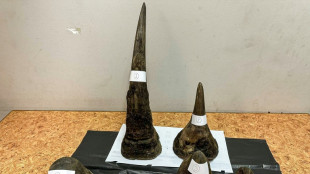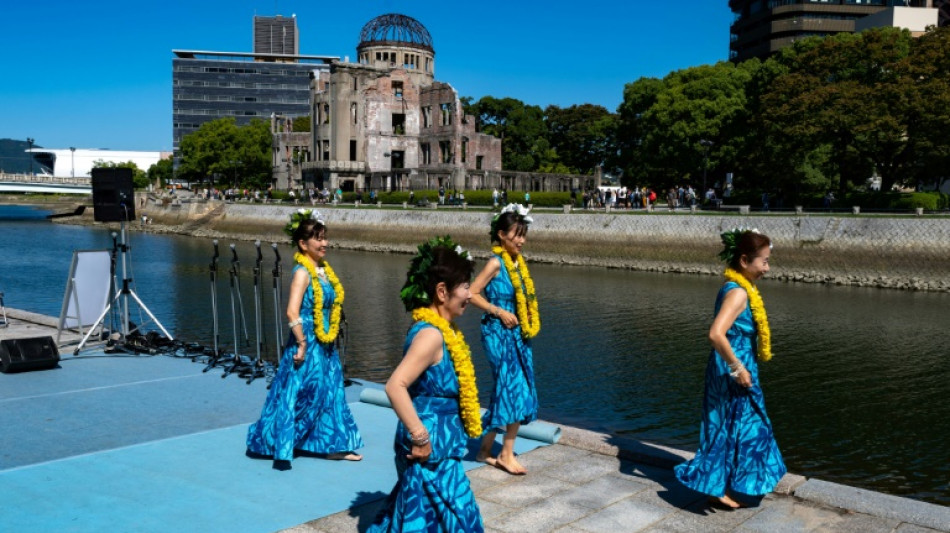
-
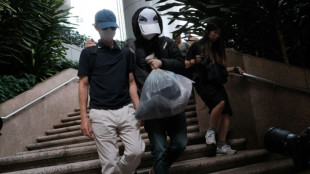 Hong Kong convicts father of wanted activist over handling of funds
Hong Kong convicts father of wanted activist over handling of funds
-
Australia charges two Chinese nationals with foreign interference
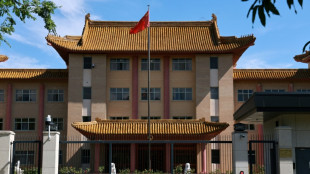
-
 'Overloading' may have led to deadly Philippine ferry sinking
'Overloading' may have led to deadly Philippine ferry sinking
-
Bangladesh to vote on democratic reform charter
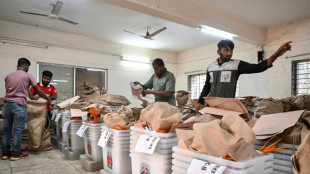
-
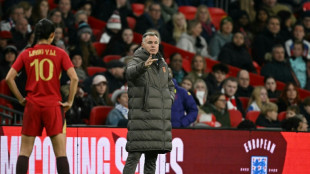 China coach warns of 'gap' ahead of Women's Asian Cup title defence
China coach warns of 'gap' ahead of Women's Asian Cup title defence
-
Glitzy Oscar nominees luncheon back one year after LA fires
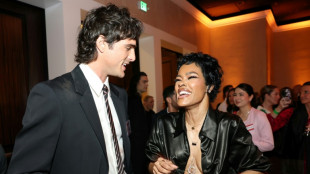
-
 Pacers outlast Knicks in overtime
Pacers outlast Knicks in overtime
-
9 killed in Canada mass shooting that targeted school, residence: police

-
 De Zerbi leaves Marseille 'by mutual agreement'
De Zerbi leaves Marseille 'by mutual agreement'
-
Netanyahu to push Trump on Iran missiles in White House talks
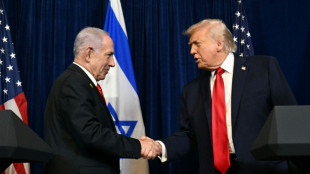
-
 England captain Stokes has surgery after being hit in face by ball
England captain Stokes has surgery after being hit in face by ball
-
Rennie, Joseph lead running to become next All Blacks coach
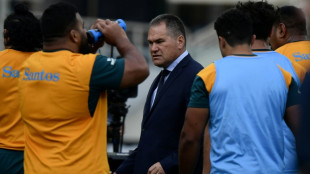
-
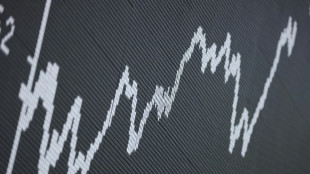 Asian stock markets mixed as traders weigh US data, await jobs
Asian stock markets mixed as traders weigh US data, await jobs
-
Australian Olympic snowboarder airlifted to hospital with broken neck

-
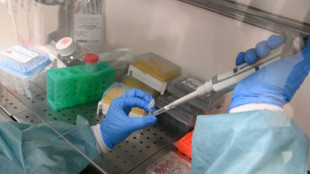 Moderna says US refusing to review mRNA-based flu shot
Moderna says US refusing to review mRNA-based flu shot
-
'Artists of steel': Japanese swords forge new fanbase
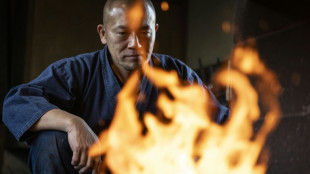
-
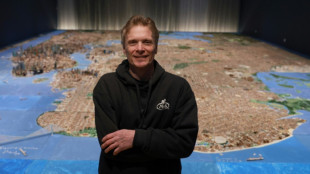 New York model, carved in a basement, goes on display
New York model, carved in a basement, goes on display
-
Noisy humans harm birds and affect breeding success: study
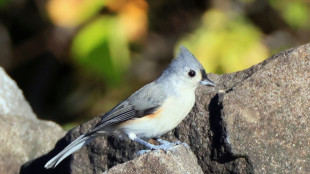
-
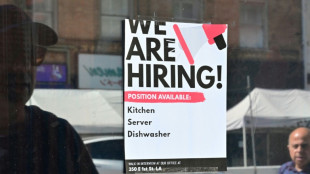 More American women holding multiple jobs as high costs sting
More American women holding multiple jobs as high costs sting
-
Charcoal or solar panels? A tale of two Cubas
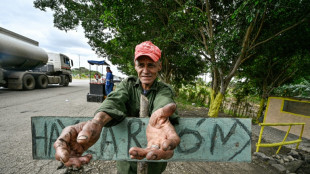
-
 Tocvan Announces Restart Of Exploration Drilling At The Gran Pilar Project South Block
Tocvan Announces Restart Of Exploration Drilling At The Gran Pilar Project South Block
-
Corporate Treasury & Digital Infrastructure Note: The Active Management Divergence

-
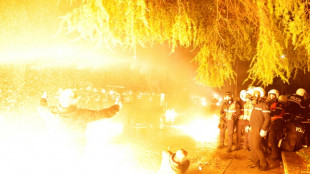 Several wounded in clashes at Albania opposition rally
Several wounded in clashes at Albania opposition rally
-
Chelsea's draw with Leeds 'bitter pill' for Rosenior

-
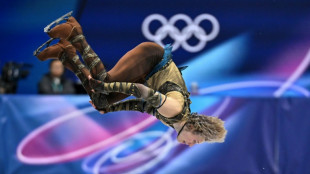 'On autopilot': US skate star Malinin nears more Olympic gold
'On autopilot': US skate star Malinin nears more Olympic gold
-
Carrick frustrated by Man Utd's lack of sharpness in West Ham draw

-
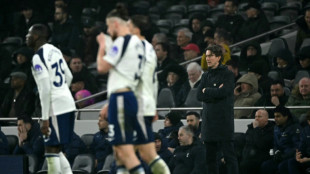 Frank confident of keeping Spurs job despite Newcastle defeat
Frank confident of keeping Spurs job despite Newcastle defeat
-
James's All-NBA streak ends as Lakers rule superstar out of Spurs clash

-
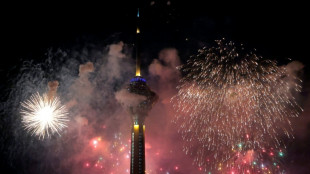 Anti-Khamenei slogans in Tehran on eve of revolution anniversary: social media footage
Anti-Khamenei slogans in Tehran on eve of revolution anniversary: social media footage
-
Colombian senator kidnapped, president targeted in election run-up
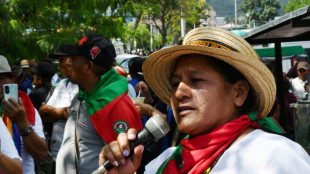
-
 Britney Spears sells rights to her music catalog: US media
Britney Spears sells rights to her music catalog: US media
-
West Ham end Man Utd's winning run, Spurs sink to 16th

-
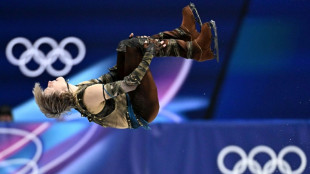 US skate star Malinin leads after short programme in Olympics
US skate star Malinin leads after short programme in Olympics
-
Man Utd's Sesko strikes late to rescue West Ham draw

-
 Shiffrin flops at Winter Olympics as helmet row grows
Shiffrin flops at Winter Olympics as helmet row grows
-
Celtics' Tatum practices with G League team but injury return uncertain

-
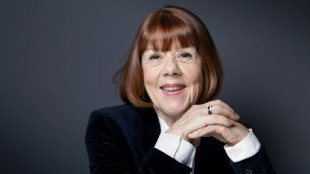 Gisele Pelicot publishes memoirs after rape trial ordeal
Gisele Pelicot publishes memoirs after rape trial ordeal
-
Newcastle beat sorry Spurs to leave Frank on the brink

-
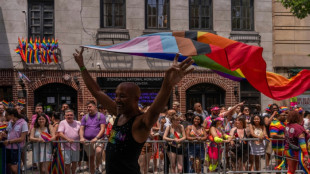 'Outrage' as LGBTQ Pride flag removed from Stonewall monument
'Outrage' as LGBTQ Pride flag removed from Stonewall monument
-
Chappell Roan leaves agency headed by embattled 2028 Olympic chief

-
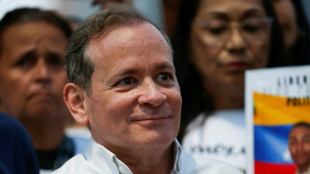 Venezuelan authorities move Machado ally to house arrest
Venezuelan authorities move Machado ally to house arrest
-
YouTube rejects addiction claims in landmark social media trial

-
 Google turns to century-long debt to build AI
Google turns to century-long debt to build AI
-
'I felt guided by them': US skater Naumov remembers parents at Olympics

-
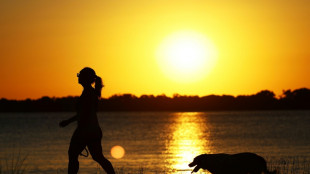 Till death do us bark: Brazilian state lets pets be buried with owners
Till death do us bark: Brazilian state lets pets be buried with owners
-
'Confident' Pakistan ready for India blockbuster after USA win

-
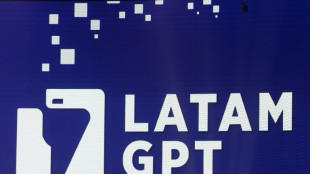 Latam-GPT: a Latin American AI to combat US-centric bias
Latam-GPT: a Latin American AI to combat US-centric bias
-
Gauff dumped out of Qatar Open, Swiatek, Rybakina through

-
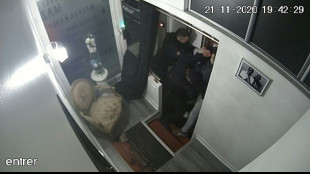 Paris officers accused of beating black producer to stand trial in November
Paris officers accused of beating black producer to stand trial in November
-
Istanbul bars rock bands accused of 'satanism'
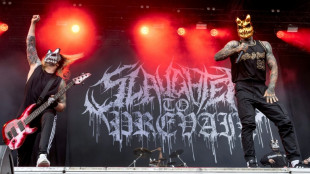

Nobel prize a timely reminder, Hiroshima locals say
Just like the dwindling group of survivors now recognised with a Nobel prize, the residents of Hiroshima hope that the world never forgets the atomic bombing of 1945 -- now more than ever.
Susumu Ogawa, 84, was five when the bomb dropped by the United States all but obliterated the Japanese city 79 years ago, and many of his family were among the 140,000 people killed.
"My mother, my aunt, my grandfather,and my grandfather all died in the atomic bombing," Ogawa told AFP a day after the survivors' group Nihon Hidankyo was awarded the Nobel Peace Prize.
Ogawa himself recalls very little but the snippets he garnered later from his surviving relatives and others painted a hellish picture.
"All they could do was to evacuate and save their own lives, while they saw other people (perish) inside the inferno," he said.
"All nuclear weapons in the world have to be abandoned," he said. "We know the horror of nuclear weapons, because we know what happened in Hiroshima."
What is happening now in the Middle East saddens him greatly.
"Why do people fight each other? ...hurting each other won't bring anything good," he said.
- 'Great thing' -
On a sunny Saturday, many tourists and some residents were strolling around the Hiroshima Peace Memorial Park to the bomb's 140,000 victims.
A preserved skeleton of a building close to ground zero of the "Little Boy" bomb and a statue of a girl with outstretched arms are poignant reminders of the devastation.
Jung Jaesuk, 43, a South Korean primary school teacher visiting the site, said the Nobel was a "a victory for (grassroots) people."
"Tension in East Asia is intensifying so we have to boost anti-nuclear movement," he told AFP.
Kiyoharu Bajo, 69, a retired business consultant, decided to take in the atmosphere of the site after the "great thing" that was the Nobel award.
With Ukraine and the Middle East, the world "faces crises that we've not experienced since the Second World War in terms of nuclear weapons," he told AFP.
The stories told by the Nihon Hidankyo group of "hibakusha", as the survivors of the bombings of Hiroshima and Nagasaki are known, "have to be known to the world," he said.
He said he hopes that the Nobel prize will help "the experiences of atomic bomb survivors spread further spread around the world” including by persuading people to visit Hiroshima.
- Future generations -
Kiwako Miyamoto, 65, said the Nobel prize was a "great thing, because even some locals here are indifferent" to what happened.
"In Hiroshima, you pray on August 6, and children go to school", even though the date is during summer vacation, she told AFP.
"But I was surprised to see that outside Hiroshima, some people don't know (so much about it)" she said.
She said that like many people in Hiroshima, she personally knows people whose relatives died in the bombing or who witnessed it.
With the average age among members of the Nihon Hidankyo over 85, it is vital that young people continue to be taught about what happened, added Bajo.
"I was born 10 years after the atom bomb was dropped, so there were many atom bomb survivors around me. I felt the incident as something familiar to me," he said.
"But for the future, it will be an issue."
F.Pedersen--AMWN
